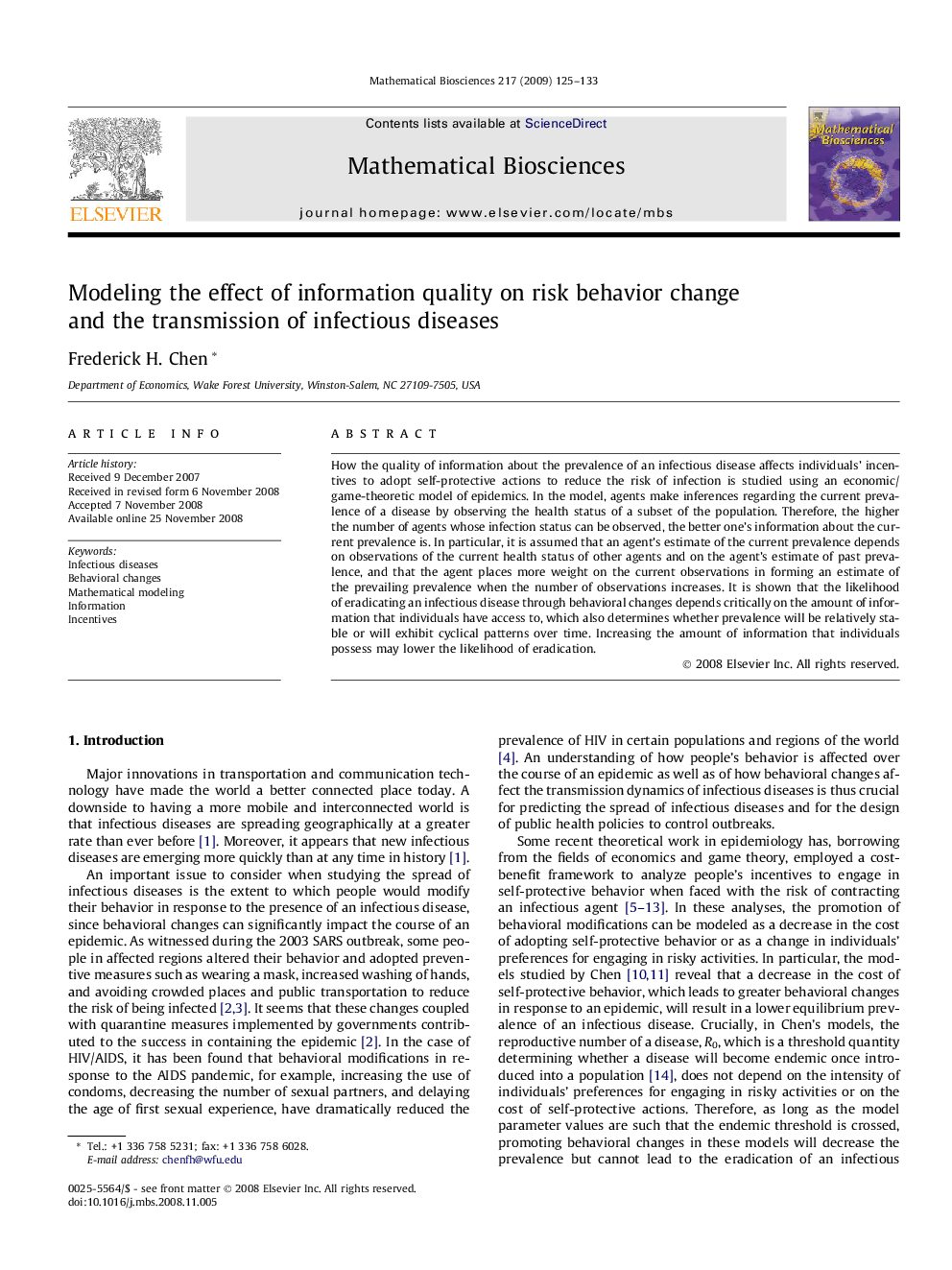| Article ID | Journal | Published Year | Pages | File Type |
|---|---|---|---|---|
| 4500778 | Mathematical Biosciences | 2009 | 9 Pages |
How the quality of information about the prevalence of an infectious disease affects individuals’ incentives to adopt self-protective actions to reduce the risk of infection is studied using an economic/game-theoretic model of epidemics. In the model, agents make inferences regarding the current prevalence of a disease by observing the health status of a subset of the population. Therefore, the higher the number of agents whose infection status can be observed, the better one’s information about the current prevalence is. In particular, it is assumed that an agent’s estimate of the current prevalence depends on observations of the current health status of other agents and on the agent’s estimate of past prevalence, and that the agent places more weight on the current observations in forming an estimate of the prevailing prevalence when the number of observations increases. It is shown that the likelihood of eradicating an infectious disease through behavioral changes depends critically on the amount of information that individuals have access to, which also determines whether prevalence will be relatively stable or will exhibit cyclical patterns over time. Increasing the amount of information that individuals possess may lower the likelihood of eradication.
